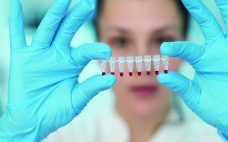Our focus on regenerative medicine this month, with its inherent personalized approach, brings to my mind aspects of “the patient experience.” Last week at BPI West in Santa Clara, CA, I was intensely moved by the performance of lymphoma survivor Toby Peach (www.tobypeach.co.uk). Our KNect365 colleagues will be asking him back this fall for the BPI Conference in Boston, and I encourage you not to miss him if you’re there. Many of us will be touched by some form of…
Thursday, April 18, 2019 Daily Archives
Cost of Goods Is Crucial for the Future of Regenerative Medicine: CAR-T Cell Therapy Provides a Case Study in Perspective
In the history of regenerative medicine, 2017 was a critical year. With approvals for Kymriah (tisagenlecleucel) from Novartis AG, Yescarta (axicabtagene ciloleucel) from Kite Pharma (a Gilead company), and Luxturna (voretigene neparvovec-rzyl) from Spark Therapeutics, cell and gene therapies finally made their mark on the regulatory landscape. Then in 2018, those products began both treating patients and bringing in revenues for their sponsor companies. “Patients are being treated, and biotechnology and pharmaceutical companies are being paid for treating them,” said…
The Role of Single-Use Polymeric Solutions in Enabling Cell and Gene Therapy Production: Part 1: Introduction and Manufacturing Process
by Bio-Process Systems Alliance Cell and Gene Therapy Committee The Bio-Process Systems Alliance (BPSA) was formed in 2005 as an industry-led international industry association dedicated to encouraging and accelerating the adoption of single-use manufacturing technologies used in the production of biopharmaceuticals and vaccines. Corporate members include plastic-equipment suppliers, service providers, and users in the biopharmaceutical industry who share this mission. A key focus of BPSA’s core activities is to educate its members and others through sharing of information and development…
Innovation Leadership in Drug Development
A “sea change” in the biotechnology and pharmaceutical industries is leading established players to recruit a new type of drug-development leader. Disruptive innovators such as LG Chem Life Sciences, Google, and NestlĂ© are challenging established life-science companies to be nimbler, more creative, and more adept at applying new and emerging technologies. To spur creativity and entrepreneurship in research and development, smaller companies and Big Pharma corporations alike are recruiting leaders from different fields both inside and outside the life sciences.…
J&J keeping Remicade biosimilars at bay through price drops
Johnson & Johnson’s Remicade continues to hold 92% of the market by volume three years since infliximab biosimilars arrived in the US. Johnson & Johnson (J&J) opened the first quarter 2019 reporting season this week by announcing an 8% year-on-year growth in its pharmaceutical’s division to $10.2 billion (€9 billion). For its immunosuppressive monoclonal antibody Remicade (infliximab), US sales – representing 70% of global sales for the firm – fell 15.5% compared to the same period last year, to $774…
Allele SCM partnership looks to stem cells to treat diabetes
Allele Biotechnology has teamed with SCM Lifescience to develop diabetes therapies using pancreatic beta cells derived from induced pluripotent stem cells (iPSCs). “By nature, pluripotent stem cells like iPSCs can be expanded indefinitely and differentiated into all human tissue types, including pancreatic cells,” a spokesperson from the San Diego-based biotech Allele, told Bioprocess Insider. Therefore, they can be a viable option for diabetes treatment. “iPSC-derived cells are already known to have biological functions, such as blood sugar sensing and insulin…






